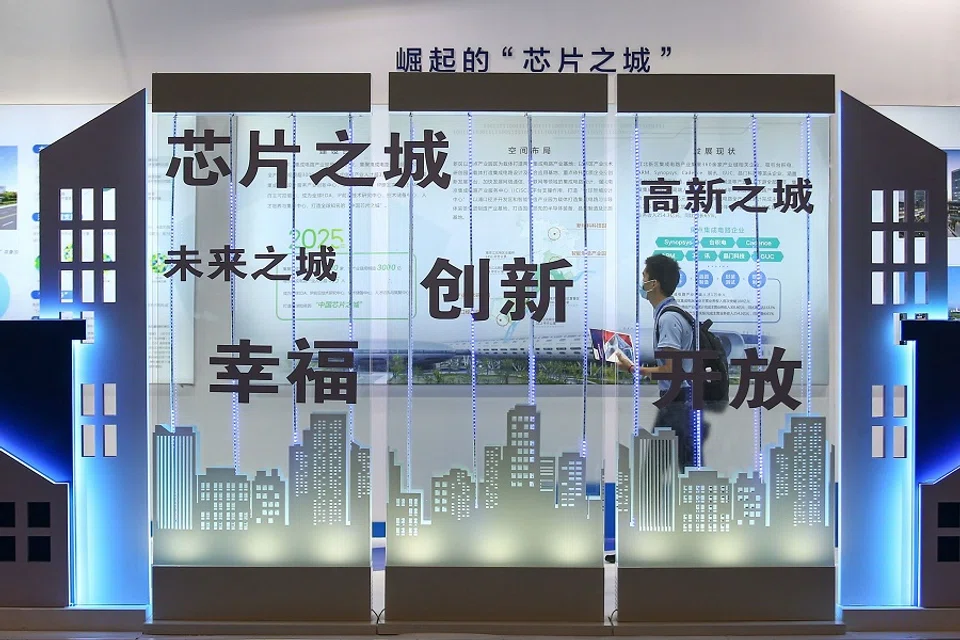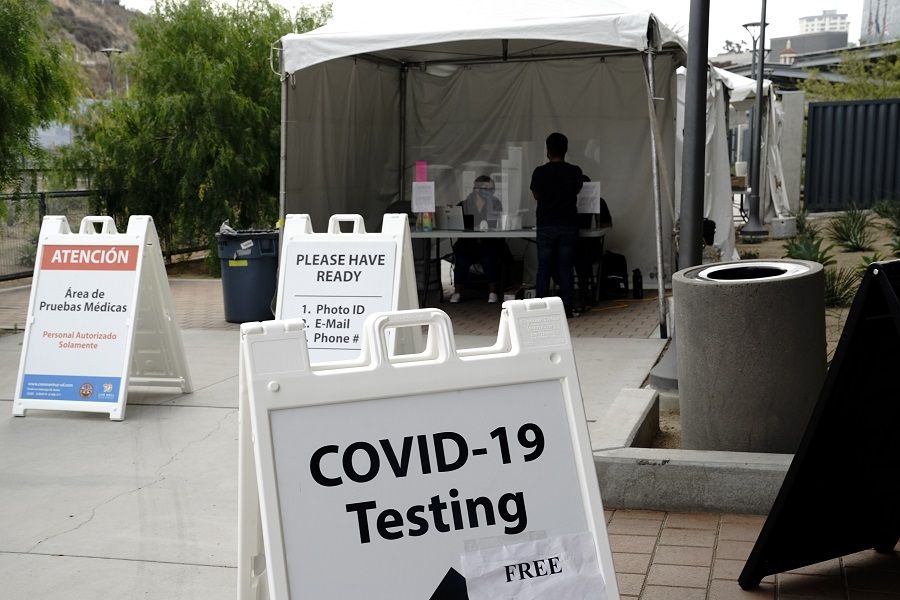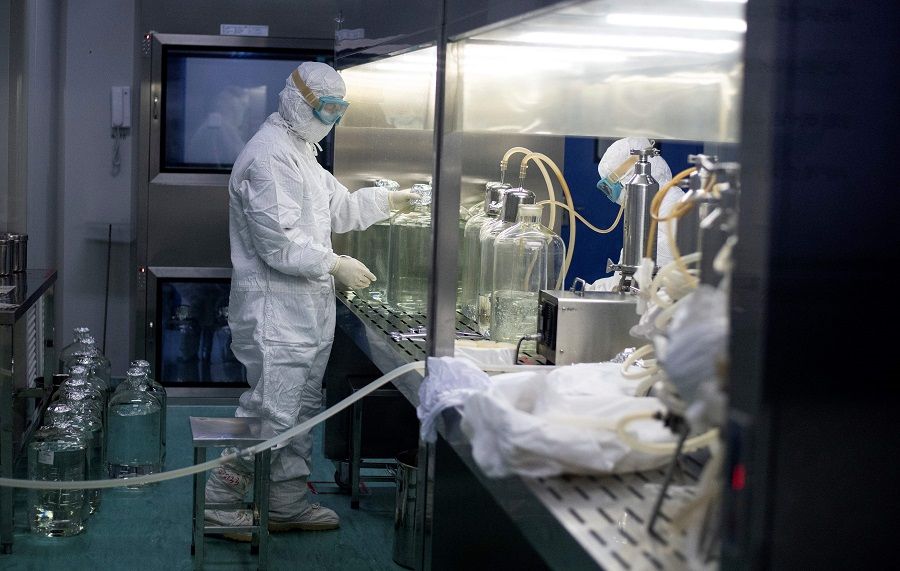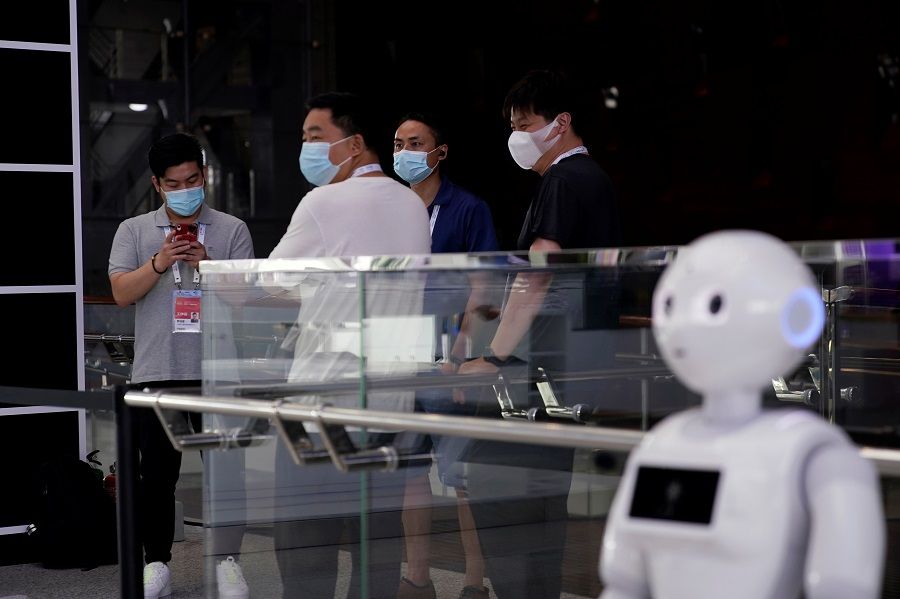Is China winning? China lags far behind the US in innovation

According to ancient Chinese philosophy, the number "nine" represents the biggest and the highest. For example, it was said that ancient China was made up of "Nine Provinces" (九州) while ancient rulers possessed "Nine Tripod Cauldrons" (九鼎) or the Mandate of Heaven. On the other hand, the number "zero" represents chaos (混沌) and a beginning. For example, the ancient Chinese philosopher Lao-Tzu once said, "Something was formed in chaos, and existed before the creation of heaven and earth."
Ancient Chinese philosophers also believed that "everything revolves eternally without end" and eventually "returns to its original form". Let us look back on the past 20th century and the current 21st century we are living in. If the 20th century represents a world advancing towards structure and order, the 21st century marks a return to the original state of chaos and disorder. This can be understood from an ancient philosophical perspective and can even account for the sudden Covid-19 pandemic that has swept the world and is still wreaking havoc everywhere since its emergence in 2019.
Most Western politicians and academics think that since China has been developing rapidly under a US-led world order, it is the interactions with and policies of the US and other major Western countries that have contributed to its rapid rise.

At present, the coronavirus has infected over 25 million people worldwide and taken over 850,000 lives. This is not including those who are already infected but have not been tested and confirmed. What is bizarre is that the coronavirus first emerged at the end of 2019 in China's Wuhan, but is now causing the most infections and deaths in the US. Although the source of the virus and patient zero are still a mystery, the pandemic has clearly worsened already-tense China-US relations.
Over the past few decades, many Western politicians and economists have called China's rapid development an incredible economic miracle, and have generally described it as "China's rise". Of course, most Western politicians and academics think that since China has been developing rapidly under a US-led world order, it is the interactions with and policies of the US and other major Western countries that have contributed to its rapid rise.

As a country with a huge population and massive land, China's rise has an impact on the existing order of world politics, economy, and military that is different from that of Asia's four little dragons. Asia's four little dragons of South Korea, Singapore, Taiwan, and Hong Kong adopted democratic models of Western politics, economy, and law. To the US-led Western world, not only were they viewed as "marginal" developments that posed no threat, they were seen positively as an extension of the Western free world.
World headed towards a state of chaos?
In contrast, China's rapid and all-round development is very different. One, it is a country of massive scale and power; two, it has a great potential of surpassing the ones that came before it; and three, it upholds a "whole nation" system (举国体制) which is overarching and comprehensive. These factors put the US, the world's current sole superpower, under unprecedented pressure.
To maintain the existing world order, and thus sustain its "America First" strategic goal, the US is suppressing and containing China in all aspects, which have invited a series of countermeasures from China. These unfriendly and even hostile measures against each other have frozen China-US relations, with US President Donald Trump threatening to "cut off the whole relationship" with China.
Many observers and academics, including myself, are worried that China-US relations will go from friendly exchanges in the past, to the recent intense confrontation, and finally land in a state of complete animosity and crossfire.

As China and the US are the world's two largest powers in the political, economic, and military realms and are currently in a state of confrontation that could further escalate, based on ancient Chinese philosophical principles, the world order can be said to be headed towards a state of chaos, as represented by the number "zero".
While China's Huawei Technologies Co., Ltd. has caught up in certain cutting-edge semiconductor chip designs, ultimately, its chip manufacturing processes are still dictated by the US.
According to a recent Japanese media report, China and the US's publication output of scientific papers is changing as well, with China surpassing the US with the largest number of scientific papers published. Moreover, the publication output gap is widening between major Western countries such as Japan, England, Germany, France on one side and China and the US on the other.
China lags behind the US in cutting-edge technology
In the early 1980s of the last century, Chinese paramount leader Deng Xiaoping proposed the realisation of "Four Modernisations" in China: industry, agriculture, national defence, as well as science and technology. Over 40 years have passed, and China has indeed achieved major improvements and incredible achievements in these four areas. However, the Chinese should clearly realise that there is still a big gap between China and the US in many aspects, such as in the cutting-edge technological field represented by semiconductor chip technology.
While China's Huawei Technologies Co., Ltd. has caught up in certain cutting-edge semiconductor chip designs, ultimately, its chip manufacturing processes are still dictated by the US. For example, the best manufacturing process of China's semiconductor chip manufacturing technology represented by the Semiconductor Manufacturing International Corporation (SMIC) is still at the 14nm phase, clearly generations away from the world's most advanced manufacturing process and technology of 7nm and even 5nm.
Most of the raw materials, technology, and equipment needed to manufacture the most advanced semiconductor chips are held in the hands of Western countries led by the US. For example, the most basic and ultrapure electronic materials and chemical gases needed can only be produced in the US and Japan at present, while the most advanced lithography technology and equipment can only be produced by a Dutch company.
This implies that Huawei's most advanced chip will never be on the face of this earth because it cannot be produced in China.

Chinese high-tech firms were suppressed to the point of suffocation when the US imposed bans on firms like Huawei on the basis of safeguarding US national security. For example, Huawei's senior management has openly admitted that the company would stop producing its flagship Kirin chipsets from 15 September due to added pressure from the US. This implies that Huawei's most advanced chip will never be on the face of this earth because it cannot be produced in China.
China is still lagging behind the US in many areas, especially in basic cutting-edge technology. Apart from core semiconductor chips, it is also lagging behind in basic software like computer data management, processing, and operating system software.
But it (China) has to realise that the quality and technological value that its papers hold are still far from those published by American researchers.
The reason for the gap between China and the US in these core, advanced, and basic semiconductor chips and software is because China is lagging behind in the corresponding applied and basic research in these areas. A country's level of basic research and applied basic research can be clearly gauged from the publication of research papers.
As China develops and strengthens its comprehensive national power, it may have caught up with the US in the number of scientific papers published as a result of its advantage in number and effort of its researchers. But it has to realise that the quality and technological value that its papers hold are still far from those published by American researchers.

Chinese researchers are still lacking in original research, that is, innovative research that goes from "zero" to "one". This is demonstrated in the scarce number of Chinese Nobel laureates. To be eager for quick success and instant benefit has always been a bane in China's developmental process, including its development in scientific research and education.
Not convinced of this argument? Look at how many universally recognised modern discoveries, laws, formulas, and technologies are named after Chinese researchers? This is truly embarrassing for the world's top researcher, second largest economy, and country with the most number of higher education graduates.
It is perhaps a scientific law that all things progress from a state of chaos (zero) to a state of order (nine) and then revert to its original state of chaos (zero). At least, this is a philosophical law that ancient Chinese philosophers believed in.
Today's world is perhaps also in a transition phase between impeccable order and disorder, as evidenced by both the raging Covid-19 pandemic and worsening China-US relations. In the later half of 2019, French President Macron suggested that the end of Western hegemony over the world was in progress. Is this his observation of an imminent disintegration of the US-led world order? If this is so, it aligns with the evolution from "nine" to "zero" in ancient Chinese philosophy.
What I wish to sum up with is that at the crucial stage of changes "unseen in a century", China should clearly recognise its strengths as well as the gaps it still needs to close in certain key technologies especially when compared to the US. It should keep its feet on the ground and work tirelessly for the world's benefit.
